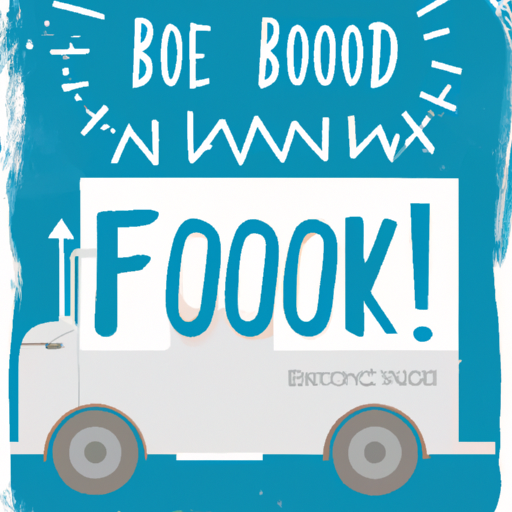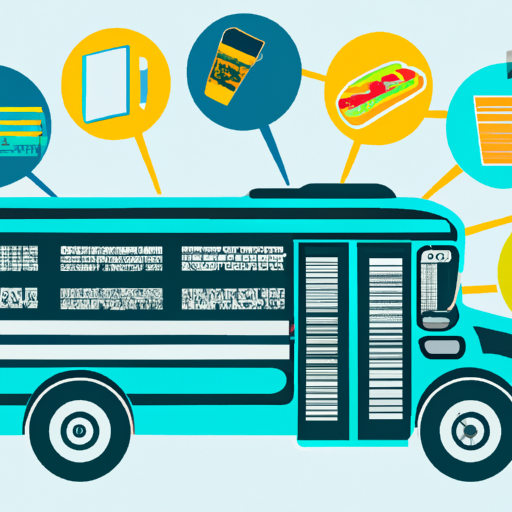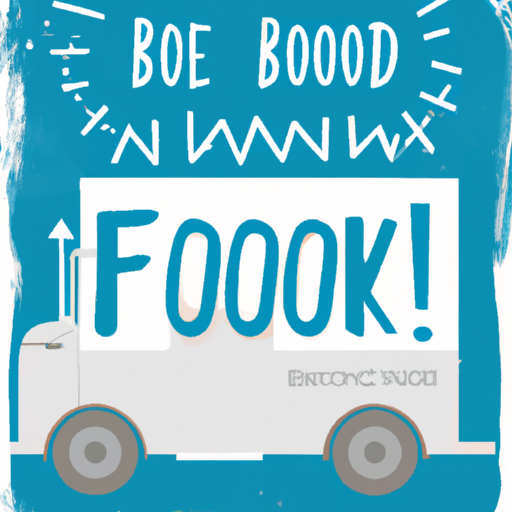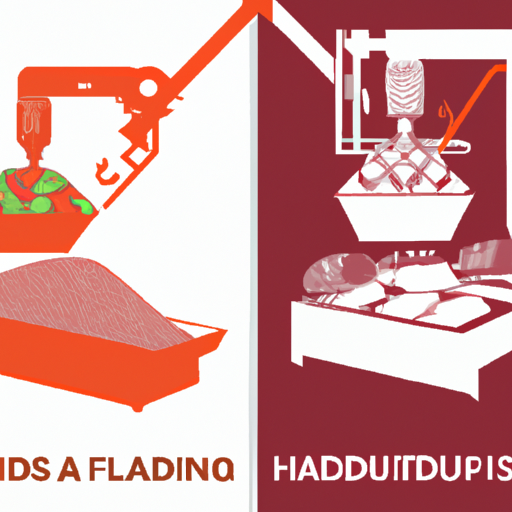What Are The Trends And Areas For Growth In The Food Truck Industry?
In this article, we will explore the ever-growing food truck industry and uncover the latest trends and areas of growth. As the popularity of food trucks continues to rise, there is a need to stay attuned to the market’s evolving preferences and demands. Whether you’re a food truck owner looking to stay ahead of the competition or someone interested in joining the industry, understanding these trends and areas of growth is crucial for success. From innovative culinary concepts to sustainability and technology-driven solutions, we will delve into the exciting developments shaping the future of food trucks. So, let’s dig in and discover what the food truck industry has in store for us!

Table of Contents
Technological Advancements
Mobile Apps
One of the key advancements in the food truck industry is the use of mobile apps. These apps have revolutionized the way customers interact with food trucks. With a dedicated app, customers can easily locate nearby food trucks, view menus, place orders, and even pay for their meals, all from the convenience of their smartphones. This seamless integration of technology not only enhances the overall customer experience but also improves operational efficiency for food truck owners. By leveraging mobile apps, food truck owners can streamline their order management process, track customer preferences, and even offer personalized promotions to drive customer loyalty.
Online Ordering
The advent of online ordering platforms has further boosted the growth of the food truck industry. Customers now have the option to pre-order their meals through online platforms, allowing them to skip long queues and wait times. Online ordering has become particularly popular for office lunches and events, where people can conveniently select and order their desired meals in advance. This not only increases customer satisfaction but also helps food truck owners optimize their resources and better plan their daily operations. By implementing online ordering systems, food truck owners can eliminate errors in order-taking and streamline their production, leading to improved efficiency and increased customer satisfaction.
Digital Marketing
Digital marketing plays a crucial role in the success of food trucks in today’s technology-driven world. Gone are the days when word-of-mouth was the primary means of advertising for food truck businesses. With the rise of social media platforms and online marketing tools, food truck owners can now reach a wider audience and promote their offerings more effectively. By creating engaging content, utilizing targeted advertising campaigns, and leveraging influencers, food truck owners can increase their visibility and attract new customers. Additionally, digital marketing provides valuable insights and analytics, allowing food truck owners to track the success of their marketing efforts and make data-driven decisions to further grow their business.
Expanding Customer Base
Catering Services
Catering services have become a significant avenue for growth in the food truck industry. Food trucks are no longer limited to operating on the streets and serving walk-up customers. By offering catering services, food truck owners can tap into a whole new market and cater to events such as corporate parties, weddings, and private parties. With their mobility and versatility, food trucks can bring the party to any location and provide a unique dining experience for guests. Catering services not only allow food truck owners to increase their revenue but also provide an opportunity to showcase their culinary skills to a larger audience, potentially leading to more business in the future.
Corporate Events
Another area for growth in the food truck industry is catering to corporate events. Many businesses are now opting for food truck catering for their company outings and team-building activities. Food trucks offer a refreshing alternative to traditional catering options, providing employees with a fun and interactive dining experience. Additionally, food trucks can cater to a wide range of dietary preferences, ensuring that everyone in the corporate setting can find something to enjoy. By establishing relationships with local businesses and targeting corporate events, food truck owners can secure recurring catering opportunities and establish themselves as go-to options for corporate dining needs.
Weddings and Private Parties
Food trucks are also gaining popularity as a unique and trendy choice for weddings and private parties. Couples looking to add a distinctive touch to their special day are increasingly opting to have food trucks cater their wedding receptions. Food trucks can serve a variety of cuisines and offer customizable menus, allowing couples to personalize their wedding dining experience. Similarly, food trucks are becoming a preferred choice for private parties and celebrations, providing hosts with a hassle-free and memorable catering option. By marketing their services specifically towards weddings and private parties, food truck owners can establish themselves as a sought-after option for these special events, ensuring a steady stream of bookings and increased revenue.
Diversification of Cuisine
Ethnic Foods
Food trucks have contributed to the diversification of culinary offerings in various cities. These mobile kitchens have opened up opportunities for entrepreneurs to introduce ethnic cuisines that may not be well-represented in traditional brick-and-mortar restaurants. Food trucks specializing in cuisines such as Mexican, Thai, Indian, and Middle Eastern have gained popularity, allowing customers to experience authentic flavors and dishes from around the world. This diversification of cuisine not only provides customers with more options but also promotes cultural exchange and appreciation. By exploring niche markets and offering unique ethnic foods, food truck owners can attract a diverse customer base and stand out in the crowded food truck industry.
Healthy and Organic Options
Consumers are increasingly conscious of their health and dietary choices, leading to a rising demand for healthy and organic food options. Food trucks have recognized this trend and are incorporating healthier choices into their menus. From salads and grain bowls to smoothies and plant-based options, food trucks are finding innovative ways to cater to health-conscious customers on the go. By sourcing fresh, organic ingredients and offering nutritious alternatives, food truck owners can position themselves as a healthier dining option and appeal to customers seeking balanced meals. This diversification of menu to include healthy and organic options not only caters to a specific market segment but also enhances the overall reputation and sustainability of food truck businesses.
Vegan and Vegetarian Offerings
In line with the growing popularity of plant-based diets, food trucks are also expanding their offerings to include vegan and vegetarian options. These trucks cater to customers who follow a vegan or vegetarian lifestyle, providing them with a range of flavorful and satisfying dishes. Whether it’s vegan burgers, plant-based tacos, or vegetarian sushi, food trucks are proving that vegan and vegetarian food can be both delicious and convenient. By incorporating vegan and vegetarian options into their menus, food truck owners can tap into the increasing demand for plant-based alternatives and attract a broader customer base. This diversification of offerings not only caters to dietary preferences but also demonstrates a commitment to sustainability and environmental responsibility.
Incorporation of Technology in Operations
Food Truck Tracking Systems
Food truck tracking systems have emerged as a valuable technological advancement for food truck owners. These systems, often integrated into mobile apps or websites, allow customers to track the location of food trucks in real-time. By utilizing GPS and mapping technology, customers can easily find nearby food trucks, eliminating the need for time-consuming searches and increasing convenience. For food truck owners, tracking systems provide valuable data on customer behavior and preferences, enabling them to optimize their routes and make informed decisions regarding future locations and hours of operation. This integration of technology not only enhances the overall customer experience but also improves operational efficiency for food truck owners.
Efficient Inventory Management
Efficient inventory management plays a pivotal role in the success of food truck businesses. With limited storage space and the need for ingredients to be fresh and readily available, food truck owners must employ effective inventory management strategies. Technology has facilitated the automation of inventory management processes, allowing food truck owners to accurately track and monitor their stock levels in real-time. By leveraging inventory management software, food truck owners can streamline their procurement, reduce food waste, and ensure consistent availability of ingredients. This efficient inventory management not only improves overall operational efficiency but also contributes to cost savings and increased profitability for food truck businesses.
Contactless Payments
The COVID-19 pandemic has accelerated the adoption of contactless payment systems across various industries, including food trucks. Contactless payments, typically made through mobile wallets or chip-enabled credit cards, provide a safer and more hygienic alternative to cash transactions. By incorporating contactless payment options, food truck owners can minimize physical contact and reduce the risk of spreading germs. This not only instills confidence in customers but also positions food trucks as businesses that prioritize safety and hygiene. Contactless payments facilitate quick and seamless transactions, enabling food truck owners to serve more customers in less time and enhance the overall customer experience.

Collaborations and Partnerships
Working with Local Farmers
Collaborating with local farmers and producers has become a popular trend in the food truck industry. By sourcing ingredients locally, food truck owners can ensure the freshness and quality of their dishes while supporting the local economy. Working directly with farmers enables food truck owners to create a seasonal and sustainable menu that showcases local produce. This collaboration also provides an opportunity for food trucks to educate their customers about the importance of sustainable farming practices and the benefits of consuming locally sourced food. By forging partnerships with local farmers, food truck owners can establish a sense of community and differentiate themselves from competitors by offering unique and locally inspired dishes.
Partnering with Local Breweries
Food trucks and breweries often go hand in hand, as they both offer unique and enjoyable experiences for customers. Partnering with local breweries has proven to be a successful strategy for food truck owners looking to expand their customer base and increase brand visibility. By coordinating with breweries, food trucks can set up at their locations during taproom events, enticing beer enthusiasts with delicious food options. This partnership provides mutual benefits, as food trucks can attract hungry customers, while breweries can offer a complete dining experience. Partnering with local breweries not only creates a synergy between two popular industries but also opens up opportunities for cross-promotion and shared customer loyalty.
Food Truck Collective Events
Food truck collective events, where multiple food trucks gather in one location, have become a growing trend in the industry. These events allow food truck owners to collaborate, share resources, and attract a larger customer base. By organizing or participating in food truck collective events, food truck owners can showcase their culinary skills in a festival-like atmosphere, where customers can indulge in a wide variety of cuisines. These events create a sense of community and drive foot traffic, boosting the visibility and profitability of the participating food trucks. Food truck collective events also provide an opportunity for food truck owners to learn from one another, exchange ideas, and form valuable connections within the industry.
Embracing Sustainable Practices
Use of Eco-Friendly Packaging
In response to growing environmental concerns, food truck owners are increasingly embracing eco-friendly packaging options. Plastic pollution is a significant issue, and food trucks have recognized their role in minimizing single-use plastic waste. By using biodegradable or compostable packaging materials, food truck owners can reduce their environmental footprint and appeal to eco-conscious customers. Sustainable packaging options such as compostable plates, utensils made from renewable resources, and paper-based packaging have gained popularity in the food truck industry. This commitment to environmentally friendly practices not only aligns with changing consumer preferences but also contributes to the overall sustainability and reputation of food truck businesses.
Sourcing Local and Organic Ingredients
The emphasis on sustainability extends beyond packaging to the sourcing of ingredients. Food truck owners are increasingly prioritizing the use of local and organic ingredients in their dishes. By sourcing ingredients locally, food trucks can reduce transport emissions and support local farmers and producers. Additionally, the use of organic ingredients ensures that food truck owners are offering their customers healthier and pesticide-free options. This focus on local and organic ingredients not only enhances the overall quality and taste of the dishes but also resonates with customers who prioritize sustainability and health-conscious choices. By connecting with local farmers and utilizing organic produce, food truck owners can strengthen their engagement with the local community and differentiate themselves from competitors.
Implementing Waste Management Strategies
Food trucks generate a certain amount of waste in their daily operations, but many owners are taking steps to implement effective waste management strategies. By incorporating recycling and composting programs, food truck owners can divert a significant portion of their waste from landfills, reducing their environmental impact. Proper waste segregation and disposal also contribute to a cleaner and more aesthetically pleasing environment around the food truck, improving the overall customer experience. Through education and awareness campaigns, food truck owners can actively involve their customers in waste management practices, encouraging them to be more environmentally responsible. By implementing waste management strategies, food truck owners can showcase their commitment to sustainability and set a positive example for other businesses.
Creative Menu Development
Food Fusions and Unique Combinations
Creative menu development is a great way for food truck owners to stand out in a competitive market. Cross-cultural food fusions and unique combinations have gained popularity among adventurous eaters looking for new and exciting flavors. Food trucks allow for experimentation and flexibility, making it easier to introduce innovative dishes that blend different cuisines and ingredients. Whether it’s Korean-Mexican fusion tacos or Thai-inspired burgers, these creative menus not only capture customers’ attention but also create a buzz around the food truck. By constantly exploring new and unique combinations, food truck owners can continuously surprise and delight their customers, attracting a loyal following and staying ahead of the culinary curve.
Limited Edition and Seasonal Menus
Limited edition and seasonal menus have become a particularly effective marketing strategy for food trucks. By offering exclusive dishes for a limited time or incorporating seasonal ingredients, food truck owners can create a sense of urgency and excitement among customers. Limited edition menus provide a compelling reason for customers to visit the food truck and try something new before it’s gone. Seasonal menus, on the other hand, highlight the availability of fresh and locally sourced ingredients, appealing to customers who are looking for seasonal flavors. By leveraging the element of exclusivity and timeliness, food truck owners can generate buzz, drive customer engagement, and boost sales.
Healthy Alternatives to Traditional Favorites
Food trucks have also found success in offering healthy alternatives to traditional favorites. By putting a nutritious spin on popular dishes such as burgers, sandwiches, and wraps, food truck owners can cater to health-conscious customers without compromising on taste. From quinoa bowls instead of rice bowls to zucchini noodles instead of pasta, these healthy alternatives provide customers with guilt-free indulgence. Food trucks have embraced this trend by offering lighter versions of comfort food classics, proving that healthy can still be delicious. By appealing to customers who seek healthier options, food truck owners can expand their customer base and appeal to a wider range of dietary preferences.
Emphasis on Branding and Storytelling
Strong Visual Identity
Creating a strong visual identity is crucial for food truck owners to differentiate themselves and attract customers. Food trucks often operate in outdoor settings, competing for attention along busy streets or at events. By investing in eye-catching, professionally designed logos, signage, and vehicle wraps, food truck owners can ensure that their brand stands out amidst the visual clutter. A visually appealing food truck not only catches the attention of passersby but also communicates the quality and professionalism of the business. Consistent branding across all touchpoints, from menus to social media profiles, further reinforces the visual identity and enhances brand recognition.
Engaging Social Media Presence
Social media has become an integral part of marketing for food truck businesses. Utilizing platforms such as Facebook, Instagram, and Twitter allows food truck owners to engage with their customers, build a following, and create a sense of community. By showcasing mouth-watering food photos, behind-the-scenes glimpses, and customer testimonials, food truck owners can generate excitement and anticipation among their social media followers. Interactive features like polls, contests, and giveaways further encourage engagement and foster a loyal online community. A strong social media presence not only helps food truck owners stay connected with their customers but also serves as a powerful marketing tool to attract new patrons and increase visibility.
Sharing the Food Truck’s Origin and Journey
Food truck owners have a unique opportunity to share their business’s origin story and journey, which can resonate with customers on a personal level. Many food trucks start as passion projects or entrepreneurial endeavors, and their stories can captivate customers and foster a sense of connection. By sharing the challenges, triumphs, and inspirations behind their businesses, food truck owners can humanize their brand and create an emotional connection with their audience. This storytelling approach can be done through social media posts, blog articles, or even on-site displays that highlight the personal journey of the food truck owner. By sharing their stories, food truck owners can instill a sense of authenticity and captivate customers who appreciate the dedication and passion behind the food they enjoy.
Leveraging Data and Analytics
Customer Preferences and Feedback
Data and analytics play a crucial role in driving growth and success in the food truck industry. By collecting customer preferences and feedback, food truck owners can make data-driven decisions and continuously improve their offerings. Customer feedback can be gathered through surveys, online reviews, and social media interactions. Analyzing this data provides insights into customer preferences, dietary trends, and areas for improvement. For example, identifying which dishes are most popular or which flavors receive the most positive feedback can help food truck owners optimize their menus and tailor their offerings. By leveraging data and analytics, food truck owners can make informed decisions that lead to increased customer satisfaction, loyalty, and ultimately, business growth.
Sales Analysis and Forecasting
Analyzing sales data and forecasting demand is another critical aspect of leveraging data in the food truck industry. By keeping track of sales metrics, food truck owners can identify patterns, trends, and seasonal fluctuations in customer demand. This data helps them anticipate busy periods, plan inventory, and make staffing decisions accordingly. Analyzing sales data also enables food truck owners to identify their bestselling items, quantify the impact of menu changes or promotional campaigns, and optimize their pricing strategies. By forecasting demand based on historical sales data and market trends, food truck owners can ensure sufficient supplies, minimize waste, and maximize revenue.
Identifying Emerging Food Trends
Staying ahead of emerging food trends is essential for food truck owners to remain relevant and appeal to changing consumer preferences. By analyzing industry reports, participating in culinary events, and monitoring social media conversations, food truck owners can identify emerging food trends before they become mainstream. This foresight allows them to introduce innovative dishes and capitalize on new food movements that are likely to gain popularity. By actively engaging with food blogs, industry influencers, and foodie communities, food truck owners can stay informed about food trends, adapt their menus, and continuously surprise and delight their customers.
Integration with Brick-and-Mortar Establishments
Pop-up Shops and Residencies
Integrating with brick-and-mortar establishments through pop-up shops and residencies has become a popular way for food trucks to expand their reach and customer base. Pop-up shops allow food truck owners to set up temporary stands or stations within existing businesses, such as cafés, bars, or retail stores. This collaboration benefits both parties, as the food truck gains exposure to a new customer base while the establishment offers an enhanced customer experience. Residencies, on the other hand, involve food trucks operating from a fixed location for a set period, usually within an existing venue or dedicated food truck park. These arrangements provide food truck owners with stability and a sense of permanence, while customers benefit from a wider variety of dining options in one location.
Collaborative Menu Offerings
Collaborative menu offerings between food trucks and brick-and-mortar establishments create a win-win scenario for both parties and provide customers with unique dining experiences. By collaborating with local restaurants or cafes, food truck owners can create joint menu items that combine the strengths and specialties of each establishment. For example, a food truck specializing in gourmet burgers could partner with a local bakery to offer burger buns made specifically for their creations. This collaboration not only introduces customers to new flavors and culinary combinations but also allows both businesses to cross-promote and attract each other’s loyal customers. Collaborative menu offerings provide a fresh and exciting dining option that sets food trucks apart from traditional restaurants.
Complementary Services with Restaurants
Food trucks can also integrate with brick-and-mortar restaurants by offering complementary services. For example, a food truck specializing in desserts could park outside a restaurant after dinner hours and provide customers with a convenient and indulgent dessert option. This partnership benefits both businesses, as the food truck gains additional foot traffic from the restaurant’s customers, while the restaurant can enhance their dining experience by offering a full-service dessert menu. By establishing these complementary services, food truck owners can tap into existing customer bases and generate incremental revenue. This integration helps bridge the gap between the mobile and stationary food industry sectors, creating a dynamic and collaborative dining scene.






